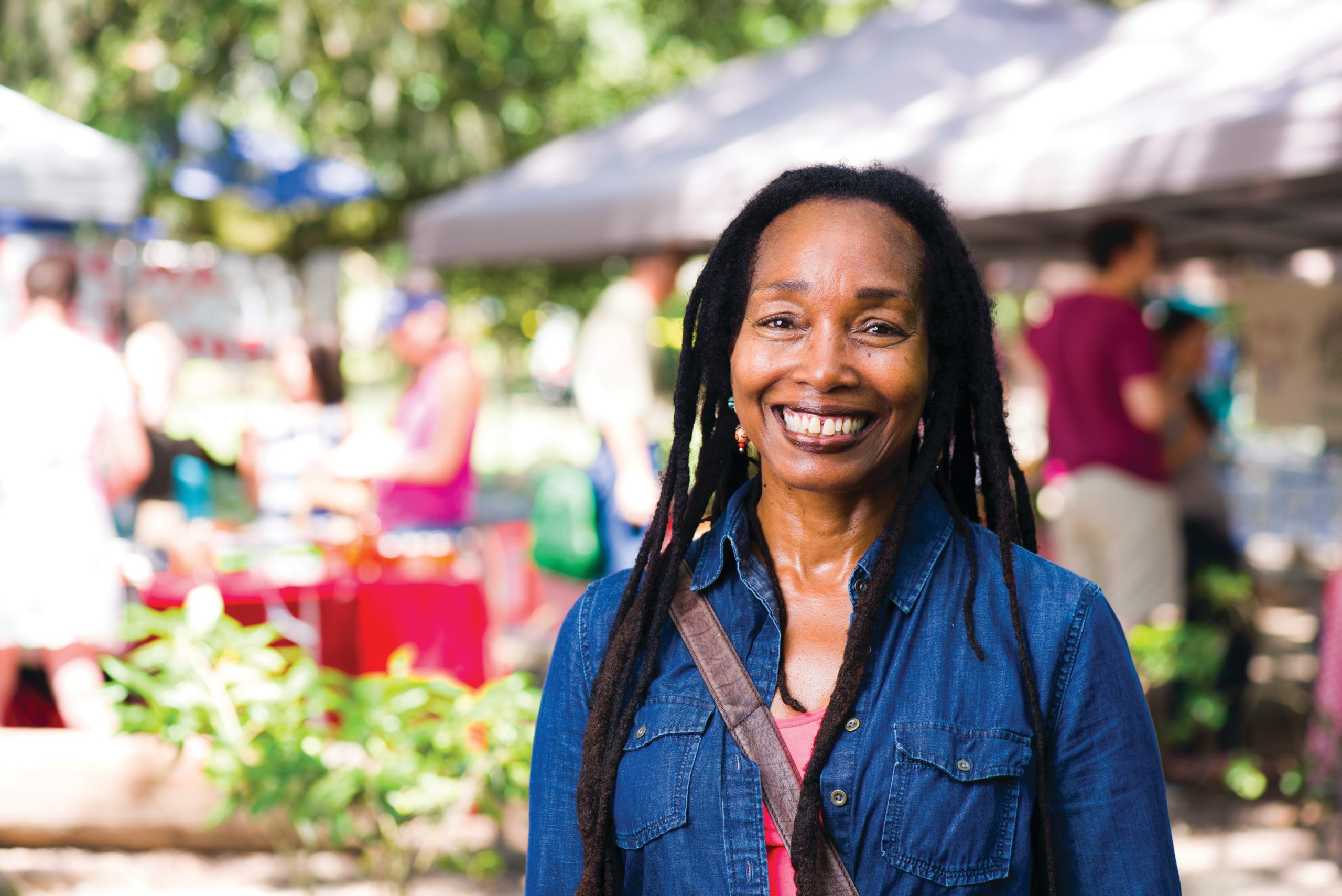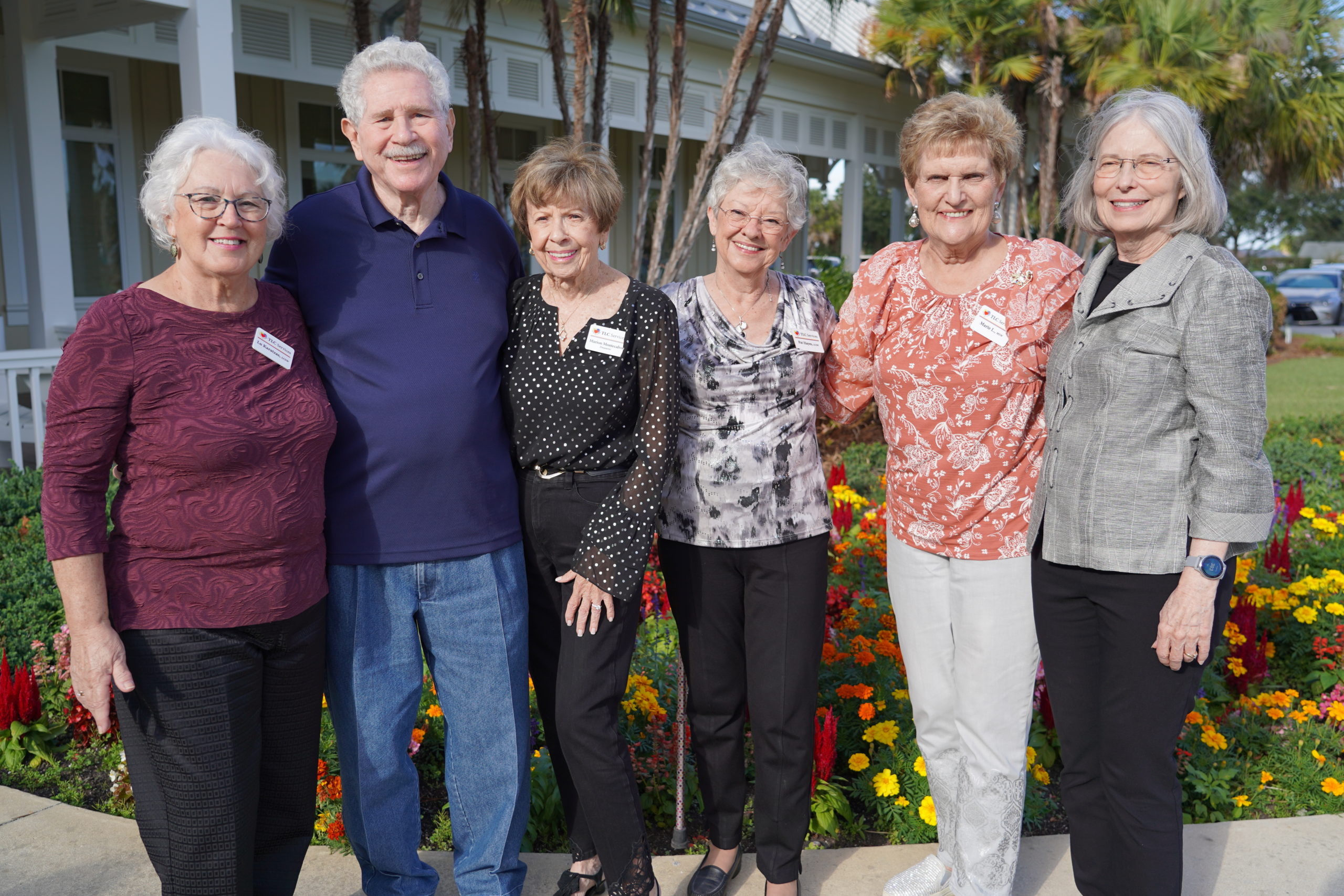By Mary Lou Janson
Bountiful, delicious family dinners, featuring harvested-at-its-peak, farm-grown produce, served as Jennifer Taylor’s childhood introduction to foods plucked fresh from the fields.
Juicy peaches, peppery mustard greens, field peas and sweet sugar cane and syrup were among the handpicked goods gracing those gatherings, all a product of the toil of Taylor’s grandmother.
The farm life and farm table were both nourishing and nurturing, providing wholesome food while also promoting goodwill between the generations seated at the table. It was from those kinds of family moments and meals that the first seed of an idea began to take root in Taylor’s mind. She recognized the valuable contributions family owned and operated farms made to health and happiness.
“Moving from a sharecropper to owning a farm was an amazing vision my grandmother had for herself and her family,” Taylor recalled. “My experience with the farm came from seeing her love of the land, the array of vegetables, fruits and animals, the successful production and her joy of living there. The memories of her enjoyment of the farm and stories of her life on the farm probably were the good foundation for me to think about how that life could be for me.”
Taylor continues this same work throughout Florida, as well as on the Georgia farm. After remaining fallow for years, the family farm has been replanted, reinvigorated and re-purposed as productive, organic acreage. Today, Taylor and her husband, Ron Gilmore, use environmentally friendly farming strategies to cultivate crops on the USDA-certified Lola’s Organic Farm. Muscadines, blackberries, strawberries, ginger, turmeric, kale and sweet potatoes are picked there, and educational workshops and farm tours are conducted to encourage others to farm responsibly.
“We are using our knowledge of organic farming to build healthy environments, as indigenous people would do, growing healthy food for our families and creating healthy conditions for farming communities and local environments,” Taylor said.
Ways they encourage healthy environments through organic seeds and strategies include integrating pollinator habitats, crop rotations, cover crops, mulching, composting and worm composting that enhances the fields as well as surrounding grounds.
“Everything counts, no matter how small it is. We, as organic farmers, chose to do what we do for the good of the soil, to grow healthy plants and animals and to provide for the well-being and health of local and global populations.”
While traveling to Florida’s small farms, Taylor focuses on an all-encompassing approach to building healthy Florida farms, farm environments and communities. She enables small farmers to maintain and manage their fields through regenerative organic farming practices, connects consumers with neighboring farms to help families source locally grown foods and promotes access to seasonally fresh foods in all communities.
Taylor currently serves as the coordinator of small farm programs, and as an associate professor at Florida Agricultural & Mechanical University (FAMU). Her firsthand experience as an organic farmer, combined with her ability to provide hands-on training to ensure farmers have the information and tools needed to implement organic, agroecology farm practices. She effectively interacts with farmers while listening and learning from them directly about their challenges.
Taylor prepared for her career by earning a bachelor’s and master’s degrees in agronomy, the science of soil management and production of field crops. Additionally, she earned a Ph.D. in vocational and technical education.
As the architect of Florida’s statewide Small Farm Program, she has been instrumental in reducing farmers’ reliance on fertilizers and pesticides that contaminate the environment. Through its initiatives, the program addresses the “well-being, sustainability and thrivability of underserved small farm populations —Black, indigenous and farmers of color.”
When COVID-19 closed restaurants, diminished deliveries to supermarkets and forced many households to seek new sources of foods that needed more preparation than simple heating and eating, small farms found new ways to bring food to the table.
“Distribution systems had broken down but small farmers were able to continue to grow and get their produce and value-added items to markets. It was wonderful to see how local food resources in communities could be successful and meet demand,” she said.
As essential service providers following social distancing protocols, some farms adapted to selling directly to consumers while other farms marketed through alternate means, such as direct-to-consumer farmers markets.
Sales increased, demand for organic goods expanded and meals made from those foods renewed connections and increased interactions between family members sheltering together. Those are trends Taylor remains optimistic will continue to grow.
“The coronavirus pandemic slowed everyone down and let us reassess what is important and valuable,” she said. “We had to relearn how to be around our family—a lot. Learn how to cook again. How to be kinder. How to practice good acts toward each other. It seemingly took the tragedies of a pandemic and the Black Lives Social Movement to persuade families to be accountable and re-examine how we can enable inclusiveness and gain racial equity for Black, indigenous and people of color in our communities and our nation.”
Taylor’s efforts have earned her numerous honors, including being tapped as the Woman of the Year in Agriculture by the Florida Department of Agriculture and Consumer Services in January 2020. During her five-year service on the National Organic Standards Board, she chaired the Material Committee and GMO ad hoc subcommittee. She also serves on the USDA Advisory Committee for Beginning Farmers and Ranchers.
IN ADDITION SHE IS CURRENTLY:
- Vice president of the Organic Farmers Association and its southern region representative
- Vice president of the International Federation of Organic Agriculture Movements – North America
- Member of the Rodale Institute Board of Directors
- Member of the U.S. Food Sovereignty Alliance
- Advisory member for the National Organic Coalition
- Standards board member of The Real Organic Project
When asked what achievement stands out from all of the others, Taylor cites the impact her efforts have on her family, the land, communities and the food we eat. “I try to encourage people to do good and make good choices that will give them life and give hope to others,” she said. “It is my hope that small farms, as essential providers to our food system, will continue to be successful in regenerative organic farming systems, enabling healthy benefits, value, goodwill and well-being, not only to Florida farmlands and Florida communities, but locally and globally.”














